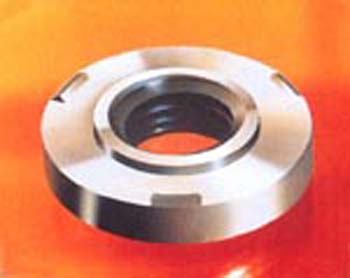Weld Nuts
In this guide, we will explore the world of these innovative fastening solutions that provide a reliable and robust way to create secure connections in various applications. Weld nuts are specifically designed to be welded directly to a metal workpiece, providing a permanent and high-strength attachment point for bolts, screws, or studs. These nuts are widely used in automotive, construction, aerospace, and industrial applications, where durability and stability are critical requirements for withstanding heavy loads and extreme conditions.
Key Features and Benefits
Weld nuts offer a wide range of features and benefits that make them essential components for reliable and robust fastening. Let's explore some of their key advantages:
- Welding Attachment: These nuts are specifically designed to be welded directly to metal workpieces, ensuring a permanent and strong connection.
- High Load-Bearing Capacity: Weld nuts provide a robust fastening solution capable of withstanding heavy loads and forces.
- Resistance to Vibration: The welded connection ensures that the nut stays securely in place, even in high-vibration environments.
- Versatile Applications: Weld nuts are used in various applications, including automotive body panels, frames, chassis, sheet metal assemblies, and more.
- Material Options: These nuts are available in different materials, including carbon steel, stainless steel, and aluminum, offering options for different environmental conditions.
- Easy Welding Process: Weld nuts are designed for easy and efficient welding, reducing installation time and labor costs.
- Space-Saving Design: Weld nuts do not require additional space on the surface of the workpiece, making them suitable for applications with limited clearance.
- Corrosion Resistance: Stainless steel weld nuts offer excellent corrosion resistance, ideal for outdoor or corrosive environment applications.
- Permanent Connection: Once welded, the nut becomes a permanent part of the workpiece, eliminating the risk of loosening or falling off.
- Cost-Effective: Weld nuts reduce the need for additional hardware or complicated assembly processes, leading to cost savings in manufacturing.
Types of Weld Nuts
Weld nuts come in different styles and sizes to accommodate various application requirements. Some common types include:
- Hexagonal Weld Nuts: These nuts have a hexagonal shape with internal threads, allowing for easy fastening with standard bolts or screws.
- Round Weld Nuts: These nuts have a round shape with internal threads, providing a secure and flush attachment point for fasteners.
- Square Weld Nuts: These nuts have a square shape with internal threads, offering enhanced stability and resistance to rotation.
- Flanged Weld Nuts: These nuts have a flange around the base, providing a larger surface area for welding and added strength.
Applications
Weld nuts find numerous applications across various industries due to their reliable and permanent fastening capabilities. Some common applications include:
- Automotive Industry: Used in automotive body panels, frames, and chassis for secure and durable assembly.
- Construction: Found in steel structures, metal frames, and equipment for robust and long-lasting connections.
- Aerospace: Utilized in aircraft assembly for mounting panels, brackets, and components.
- Industrial Machinery: Employed in heavy machinery and equipment for securing critical components and parts.
- Sheet Metal Assemblies: Found in sheet metal fabrications for attaching brackets, handles, and other hardware.
- Appliances: Used in household appliances, such as ovens and refrigerators, for sturdy assembly.
- Electrical Enclosures: Found in electrical cabinets and enclosures for mounting components and panels.
- Transportation: Utilized in trucks, buses, and trains for various fastening applications.
Welding Process
The welding process for weld nuts is a critical step in achieving a secure and reliable connection. It typically involves the following steps:
- Surface Preparation: Ensure that the surface of the workpiece is clean and free from any contaminants that could affect the weld quality.
- Positioning: Position the weld nut on the desired location of the workpiece and secure it in place.
- Welding: Use a welding machine to apply heat and create a fusion between the nut and the workpiece.
- Cooling: Allow the welded area to cool down, ensuring that the weld joint solidifies and forms a strong bond.
- Inspection: Inspect the welded joint for quality and integrity, ensuring that the nut is securely attached.
Quality Assurance and Certifications
At OneMonroe, we prioritize quality and reliability in every weld nut we produce. Our manufacturing processes adhere to stringent quality standards, and our experienced team of engineers and technicians ensures that each nut meets or exceeds industry specifications. We are committed to providing products that you can trust for your critical fastening applications.
Conclusion
Enhance the versatility and strength of your assemblies with our Weld Nuts. Whether you require nuts for metal fabrication, automotive, or construction projects, our selection offers reliable solutions that ensure a secure and durable connection. Experience the efficiency and robustness of our weld nuts by exploring our diverse range today.










